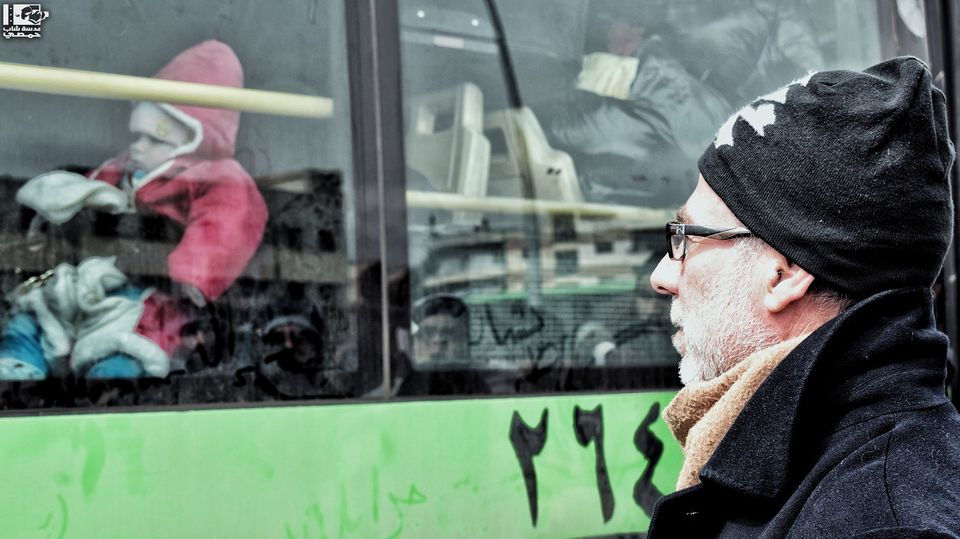
Forced Displacement in Syria and International Accountability
Last week, in a Russia-brokered agreement between pro-government and opposition forces, approximately 1,100 civilians left their homes in the Homs neighborhood of al-Waer. This marks one of the largest single population transfers in Syria, with thousands more civilians expected to follow suit. Although the sign-up for the “evacuation” was characterized as voluntary, pro-government forces coerced people to leave, and civilians feared retribution if they remained in their homes. Despite the large size of this latest transfer, the Homs displacement is merely part of a consistent strategy by President Bashar al-Assad to consolidate territory and expel civilians who do not completely support his government.
International law clearly prohibits involuntary displacement as a strategy of war. In fact, a recent report by the UN Commission of Inquiry on Syria (COI-Syria) specifically describes a December 2016 deal between rebels and the government — which led to the evacuation of the remaining population in Aleppo — as the war crime of forced displacement. The report resulted from a Human Rights Council (HRC) resolution requesting the COI-Syria to investigate fighting in Aleppo from July to December 2016 when it was apparent that warring parties were repeatedly and indiscriminately attacking civilian areas without adhering to principles of international humanitarian law. The HRC resolution requesting the inquiry also asked the COI-Syria to identify those responsible, to the extent possible, which is the furthest the UN entity has gone to publicly link violations with perpetrators.
The COI-Syria’s conclusions on forced displacement are unequivocally severe. Yet, at the time when the Russian and Syrian governments announced their evacuation plan, the political branches of the United Nations did not condemn them. Rather, UN Security Council Resolution 2328 tacitly supported the evacuation. Although the Resolution demanded the evacuation be voluntary and heavily monitored per international legal principles, the facts on the ground did not support the notion that such a plan was or could be carried out voluntarily. UN Special Envoy Staffan de Mistura congratulated the Security Council for its inherently flawed resolution, in stark contrast to the human rights and humanitarian branches of the UN.
The Syria Justice and Accountability Centre (SJAC) has consistently condemned the Syrian government’s strategy of forced displacement and commends the COI-Syria’s bold conclusions on evacuations in Aleppo. Unfortunately, however, after six years of conflict, it is clear documentation, reports, and condemnation are not enough to deter such action. Even more concerning is the lack of action on the part of the UN Security Council in response to the COI-Syria’s findings over the past five and half years. Although unlikely, the UN Security Council must do more to bring perpetrators of such violations to justice while providing adequate protection to civilians. As can be seen in al-Waer, the Syrian government is not taking the COI-Syria’s Aleppo conclusions into consideration as it continues to coerce civilians to leave their homes and go to areas without adequate living conditions in place and that are susceptible to future fighting and insecurity.
As SJAC concluded in its report A Step towards Justice, national prosecutions in European and North American courts are the most feasible avenues currently available for accountability, given Russia’s obstinance in the Security Council. However, trials are unlikely to occur if national prosecutors do not have access to evidence, including photographs, videos, and witness testimonies. The international community’s response to the Security Council deadlock has been to create the International Independent and Impartial Mechanism (IIIM) through a UN General Assembly resolution. As per the terms of reference (TOR), the IIIM will prepare case files to be expedited for fair and independent criminal proceedings in established or future national, regional or international courts with appropriate jurisdiction. Documentation for files is acquired primarily by cooperating with the COI-Syria as well as civil society organizations.
Better operationalization of UN accountability mechanisms is an important first step towards bringing violators to justice. Active Syrian NGO consultation, particularly with credible organizations focused on documentation, can ensure that breaches of international law do not go unaddressed. Forced displacement will be a difficult case for the IIIM to tackle given that many of the witnesses, evidence, and officials issuing the displacement orders remain in Syria, out of reach of the mechanism’s investigators. But by working with the COI and local Syrian organizations, the IIIM can increase the amount of information available and begin the process of holding the perpetrators to account. And the IIIM’s investigations could subsequently pressure the political wing of the UN to include justice in any peace agreement between the parties, and, at the very least, refrain from tacitly supporting actions that essentially amount to grave violations of international law.
For more information or to provide feedback, please contact SJAC at [email protected].